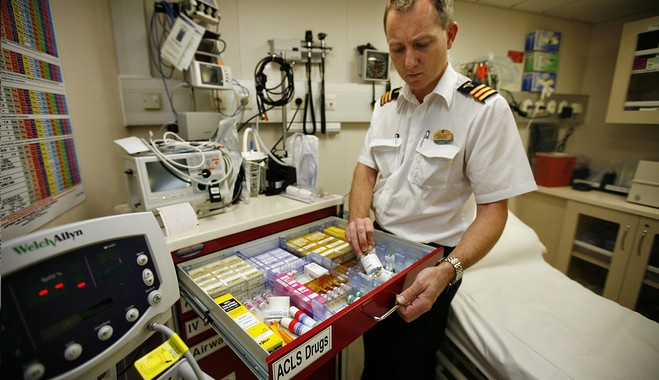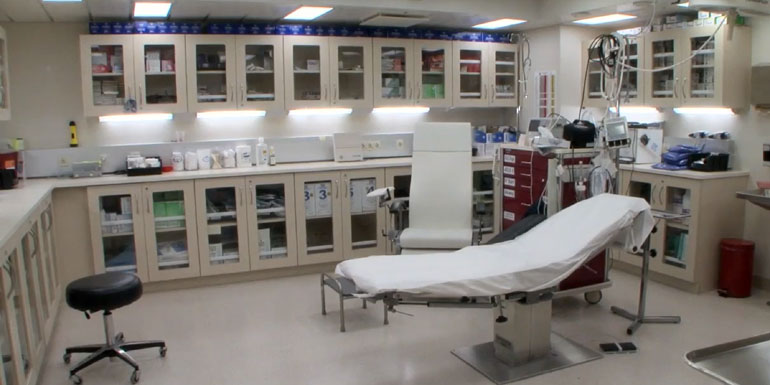A cruise ship medical typically includes a thorough health assessment and various medical tests. It ensures passengers and crew are fit for sea travel.
Embarking on a cruise adventure is exciting, but before setting sail, passengers and crew must undergo a cruise ship medical. Ensuring safety and readiness for the high seas, this health checkup aims to identify any medical conditions that could be exacerbated by the unique environment aboard a cruise ship.
It generally comprises a range of examinations such as a physical assessment, blood tests, immunization verification, and screening for communicable diseases. For crew members, the scrutiny is often more rigorous, with additional requirements set by maritime regulations to guarantee they can perform their duties effectively. Prospective travelers should prioritize their health clearance to guarantee a smooth voyage for everyone on board.
Quick Navigation
Embarking On High Seas Healthcare
Cruise ships ensure guest safety with highly qualified medical teams. These professionals often have emergency or critical care experience.
They hold certifications like Advanced Cardiac Life Support (ACLS). This means they know how to handle serious health issues at sea.
The onboard healthcare facilities are like small hospitals. They have examination rooms, critical care beds, and labs. You will also find x-ray machines and pharmacies.
Medical Services Offered To Passengers

Cruise ship medical facilities offer a range of services for passenger care. Routine care is accessible on board, ensuring guests receive necessary medical attention. These services include basic treatment for common illnesses, medication administration, and minor injury management. Medical personnel are trained to handle a wide array of health issues that might arise during a voyage.
In cases of emergencies, dedicated protocols are in place to provide immediate response. Medical teams can perform advanced life-saving procedures if needed. For severe cases, there are protocols for emergency evacuations to land-based hospitals. Passengers can rest assured that they will receive prompt and efficient medical care when required.
Crew Health Matters
Cruise ships take crew health seriously. Medical checks are important for every crew member. These checks happen before joining and often thereafter.
The checks include tests for physical fitness and health. Vaccinations are also a key part. Crew members receive care throughout their contract. This ensures they stay healthy at sea.
Doctors and nurses are always on board. They provide ongoing medical support. Staff can get help for both small injuries and serious conditions. Crew welfare is a top priority.

Medical Equipment And Pharmacy
Cruise ships are equipped with advanced medical devices. This includes critical care monitors, defibrillators, and EKGs. X-ray machines and ultrasound units are also on board. These tools help doctors treat patients quickly and successfully.
Sick passengers need the right medicine. Ships have a wide range of drugs to help. They stock painkillers, antibiotics, and sea sickness tablets. Also, they have prescription medications. This ensures good care far from land.
Cruise ships must meet international health rules. These rules keep everyone safe on board. Ships follow the International Health Regulations (IHR), made by the World Health Organization.
Doctors on cruise ships work with local port health officials. This team effort helps stop diseases from spreading. They check passengers and crew. They also keep the ship clean.
For example, if someone gets sick, they must tell the next port. This way, the port knows about any health issues. They prepare to help sick people quickly.
Overall, these steps make sure that cruising is safe. They protect passengers, crew, and people at each port.
Illness Outbreaks And Infection Control
Cruise ships have plans for illness outbreaks. They use special strategies to keep everyone safe. This includes keeping sick people away from others. Clean areas stop germs from spreading. Doctors and nurses help sick people get better.
Guests and crew must wash hands often. Alcohol-based sanitizers are everywhere. Crew get vaccines to stop sickness. They teach guests how to stay clean. This helps stop illness on ships.

Frequently Asked Questions
What Is Included In A Cruise Ship Medical Exam?
A cruise ship medical exam typically includes a thorough medical history review, physical examination, blood tests, and possibly chest X-rays or EKGs. Vaccination status may also be verified depending on travel destinations.
Are Drug Screenings Required For Cruise Ship Employment?
Yes, drug screenings are a standard part of the cruise ship medical exam. They ensure that all crew members comply with the cruise line’s substance abuse policies and maintain a safe environment onboard.
How Often Must Crew Members Undergo Medical Exams?
Crew members are usually required to pass a medical exam before their initial employment. Afterward, periodic health assessments are conducted, often annually, to ensure ongoing fitness for duty.
What Medical Professionals Conduct Cruise Ship Medicals?
Cruise ship medicals are typically conducted by licensed healthcare professionals, such as doctors or nurses, who are authorized to perform maritime medical examinations and understand the unique requirements of the industry.
Conclusion
Embarking on a cruise guarantees adventure and relaxation with peace of mind. The comprehensive medical protocols ensure your health is a priority. Expect state-of-the-art facilities and expert care while at sea. Trust your well-being to the capable hands on deck for a worry-free voyage.
